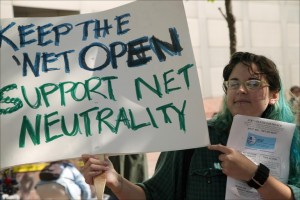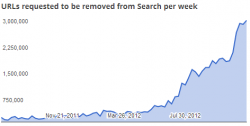Weekly News Roundup (1 March 2015)
Again, apologies for not having anything to talk about last week. And apologies for having too much to go through this week. No time to waste, so let’s get started …
![]()

A big win for Net Neutrality, no surprises that ISPs didn’t like the FCC ruling, nor did Republicans
So while last week was super quiet, this week was anything but. The most exciting, and perhaps important news of the week came via a source you don’t usually associate with excitement – the FCC. This week, the FCC voted (3-2 on party lines, 3 Democrats vs 2 Republicans) to reclassify Internet access as an utility under Title II of the Communications Act. What this means is that, after the setback in the courts which seems to have doomed Net Neutrality, the new strategy by Net Neutrality proponents to seek a Title II reclassification appears to have worked. The FCC can now implement their Open Internet rules via regulation that’s designed to protect consumers, much like how the government does so in regards to electricity or water access.
What I found most interesting were the Republican responses, many slamming the ruling as “big government overreach”. But when it comes to protecting the free (more as in money, than freedom) flow of information on the Internet, I will side with big government any day of the week over big corporations and monopolies – corporations like Comcast and Verizon who want to toll up the Internet, relegating those who cannot pay to second class net citizens. The choice is not between regulation and no regulation, the choice is between government regulation designed to protect the consumer, or big business regulation designed to enrich themselves.
The funny thing was that many of these big business anti-regulation politicians took to social media platforms like Twitter to vent their outrage, the very same social media platforms, and indirectly free speech itself, that will be harmed if Net Neutrality is destroyed. The “market knows” mantra doesn’t work when in effect there is no market, just monopolies – in this instance, the only thing the market knows is how to line their pockets with money at the expense of everyone else.
The fact that most big Internet businesses, like Netflix and Microsoft and Twitter and Tumblr, are all hailing the ruling should be giving these so called pro free market politicians some pause for thought. Sometimes by being anti-regulation simply means you’re supporting one business or industry at the expense of another, and when free market politicians active campaign and legislate for this, aren’t they the ones, in government, doing all the regulating and altering the results of what was supposed to be a free market? Add in the fact that the market and its participants are often not rational at all, it all adds up to the idea that you sometimes cannot have a free, healthy market without strong regulation (designed not to stifle it, but to protect it).
Now I know the story above is less to do with copyright and more to do with the Internet in general (didn’t stop the MPAA from somehow tying the ruling to their anti-piracy crusade), but this next story definitely is a copyright story, and had it gone the wrong way, could have had an even bigger impact than Net Neutrality. The Internet was one bad DMCA takedown request away from having the world’s most popular downloads all being blocked on Google, if Google had been sleeping on the job. Everything from Java, to Skype, to WhatsApp, to Redhat/Apache/MySQL server software, could have been removed from Google’s index if the DMCA request from Total Wipes Music Group for an obscure music album would have been processed without intervention. Luckily, Google’s system is designed to prevent this type of false positives, although right now, there appear to be no punitive action for companies that continue to submit bad requests.
To be fair to Total Wipes Music Group, they accepted total responsibility and vowed to never let it happen again (apparently it was a software error that, instead of grabbing links related to the name of the music album, grabbed links related to the word “download” instead – no wonder then that the most popular downloads in the world were all listed).
——
I suppose, being in Australia, I should talk about the new industry code of conduct to deal with the piracy problem here. The proposal calls for a three-strikes system, but one that appears to be full of loopholes and watered down actions. For example, those on business plans are exempt, while you can get away with two infringement notices every year without any sort of punitive action (the three-strikes counter resets every 12 month). And even when you do get that third strike, it’s up to Big Content to get a court order to compel the ISP to hand over customer details – whether Big Content wants to go down the “sue the downloader” route again, after already admitting that it was largely a mistake, I don’t really know.
What I do know is that our no good, universally despised and most likely to be voted out of office government has been putting a lot of pressure on ISPs and content owners to come up with an industry solution, with the threat of government intervention if talks fail. This is the same government that failed to consult ISPs and consumer groups, and instead, only talked to content owners before coming up with the idea that everything must be done to ensure US companies can continue to rip off Australian consumers by charging more for less. Why am I not surprised?
![]()
In all my excitement last week about the, um, total lack of excitement, I actually forgot to talk about the January NPD results. But they weren’t that exciting though, with the PS4 once again back on top after the Xbox One sales event ($50 off) ended, before bringing the discount back half way through the month.
This week did yield something a bit more interesting, with Nielsen releasing the results of a survey that shows just exactly why people choose the console they choose.
“Better graphics” was the number one reason behind PS4 buyers choosing to buy Sony’s latest console, while Xbox One buyers said that the Xbox brand was what attracted them the most.
And just to show how perception really is 90 per cent of reality, both PS4 and Xbox One owners cited “faster processing power” behind their choices (although I guess both could have been referring to their consoles of choice being faster the Wii U) – both Xbox One and Wii U owners also cited “exclusive game content” as a top reason.
Showing that Kinect isn’t the dead horse that many others believe it to be, the number two reason for Xbox One owners choosing Microsoft’s console was the console’s “innovative features”.
For Wii U owners, the “fun factor”, “better for kids” and better value nature of the console were key drivers, something that makes perfect sense.
Also very interesting was the question of which last-gen consoles the respondents owned. 59% of PS4 owners previously owned an Xbox 360, compared to only 43% of Xbox One owners who had owned a PS3 – the difference here perhaps explains the reversal of fortunes between Microsoft and Sony’s consoles in this generation. 86% of Wii U owners owned the Wii, showing Nintendo still has a group of loyal fans.
——
All very interesting stuff. It’s just one of those things I guess, sometimes all the interesting stuff happen all at the same time. Sad stuff too. R.I.P. Leonard Nimoy. I’ll leave you with his very last tweet:
“A life is like a garden. Perfect moments can be had, but not preserved, except in memory. LLAP”
Dif-tor heh smusma, Spock.


